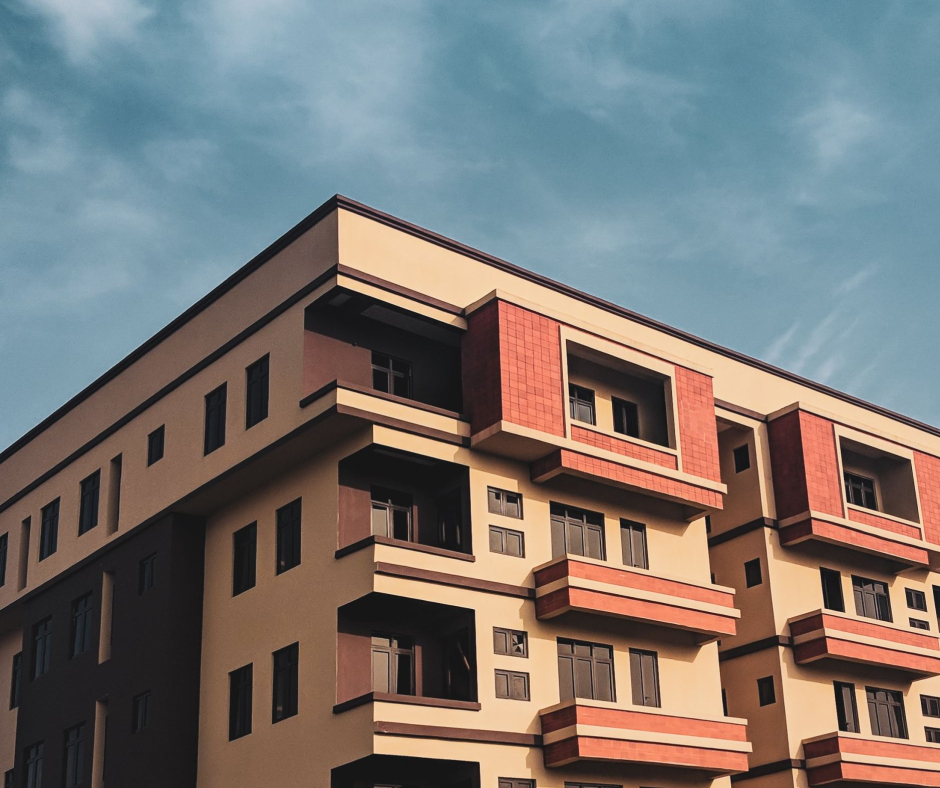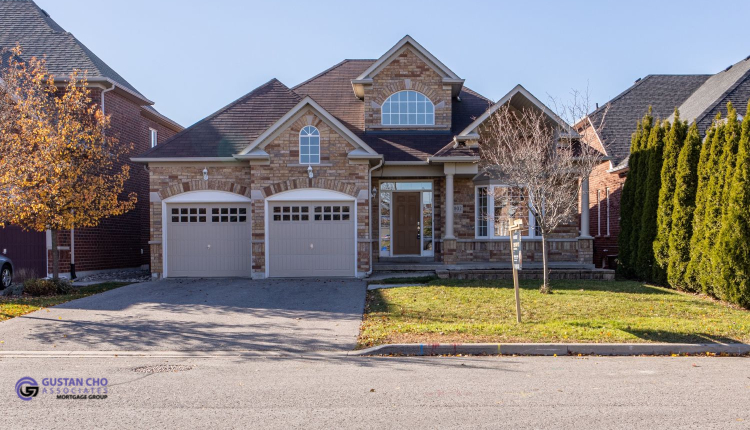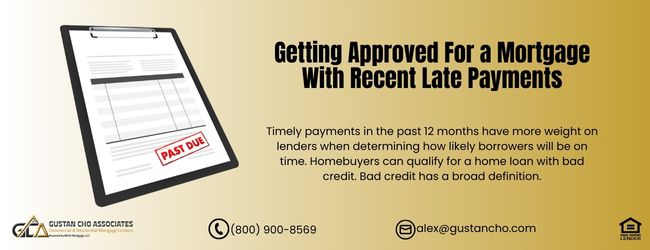Using Secured Credit Cards To Rebuild Credit For a Mortgage

This guide covers using secured credit cards to rebuild credit for a mortgage. This article will teach mortgage borrowers how to use secured credit cards to build credit to qualify for a mortgage. You can have bad credit and qualify for a home loan. However, you need timely payments in the past 12 months to qualify for a mortgage. Outstanding collections and charged-off accounts do not have to be paid off to qualify for a mortgage.
Lenders understand that people experience periods of bad credit due to extenuating circumstances such as job loss, business loss, family death, and medical issues. However, people do recover from a financial crisis.
Once they recover, lenders want to see them re-establish themselves with new credit. Late payments after a period of bad credit, bankruptcy, or foreclosure can mean the kiss of death. Borrowers who have late payments after bankruptcy, foreclosure, or periods of bad credit are often referred to as second offenders, and it will be difficult to get a mortgage. However, GCA Forums Mortgage Group are experts in helping homebuyers with bad credit. If there is a will, there is always a way to qualify for a mortgage with bad credit. Remember the word prior? Timely payments in the past 12 to 24 months are required to get an approve/eligible per the automated underwriting system.
Qualifying For a Mortgage After Bankruptcy and a Housing Event
Borrowers can qualify for a mortgage after bankruptcy, foreclosure, deed-in-lieu of foreclosure, or short sale. However, there are mandatory waiting period requirements after bankruptcy or a housing event. During the waiting period, lenders want to see if borrowers have rebuilt their credit and have been timely with all the minimum debt payments.
Late payment after bankruptcy or foreclosure is normally a deal killer. However, one or two late payments after bankruptcy and foreclosure may be allowed, depending on the circumstances.
Consumers need to realize the importance of good credit and timely payments. Monitor your minimum monthly payments religiously. Monitor your credit report the same way you would monitor your bank accounts.. Secured credit cards are the best tools to build credit and raise credit scores. Good credit and high credit scores mean lower mortgage rates on your home loan. In this article, we will discuss how to use secured credit cards to build credit for a mortgage.
Learning How To Use Secured Credit Cards To Build Credit
Many consumers who have gone through periods of bad credit, bankruptcy, foreclosure, deed-in-lieu of foreclosure, or short sale want nothing to do with credit after they get on their feet. Many religiously want to purchase everything with cash or debit cards. Unfortunately, this is not good. Our economy revolves around credit.
People can get credit after bankruptcy, foreclosure, and periods of bad credit. The easiest and fastest way to rebuild credit is with secured credit cards. The ideal number of secured credit cards is three with a $500 credit limit.
Besides secured credit cards, consumers should get one installment credit builder tradeline. The team at GCA Forums Mortgage Group are experts in helping potential mortgage borrowers maximize their credit scores. The team at GCA Forums Mortgage Group has helped countless borrowers boost their credit scores. High credit scores mean lower mortgage rates. Higher credit scores mean lower insurance premiums. High credit scores mean lower private mortgage insurance. In the following paragraphs, we will cover using secured credit cards to rebuild credit for a mortgage.
Qualifying For a Mortgage After Bankruptcy
Apply Online And Get recommendations From Loan Experts
Unsecured versus Secured Credit Cards
Secured credit cards work the same way as unsecured credit cards. However, the main difference with secured credit cards is that the company requires a deposit. The deposit is used as collateral by the credit card company. The credit card company will issue a credit limit equal to the deposit amount. The deposit can be as low as $200 or as high as over $10,000. If the credit card holder defaults on the secured credit card payments, the creditor will hold onto the deposit. If the cardholder cancels or closes the card after clearing the balance, the creditor will refund the deposit in full. Credit card companies will increase credit limits for secured credit cardholders showing a timely payment history without requesting additional deposits.
How To Use Secured Credit Cards To Build Credit And Qualify For Unsecured Credit Cards
Secured credit cards are the easiest and fastest way of rebuilding credit for those with bad or no credit. Once you have secured credit cards seasoned for at least a year, you can easily qualify for unsecured credit cards. When getting secured credit cards, ensure the credit company reports to all three credit bureaus. It makes no sense to go through the trouble of getting secured credit cards and not getting reporting to all three credit bureaus.
Secured credit card companies do charge high interest as well as annual fees, just like unsecured credit cards. Prepaid credit cards are not secured credit cards. Prepaid credit cards do not report to any credit reporting agencies. Prepaid cards are reloadable debit cards, not credit cards. Prepaid credit cards are great to use to control and manage spending.
Components of Consumer Credit Scores
Credit scores fluctuate constantly. There are several components that makeup consumer credit scores. The two most important components are the consumer payment history and credit utilization on revolving accounts. Credit utilization is derived by taking the credit card balance by the credit card limit. To get the maximum credit score possible, try to have a credit utilization of less than 10%. Payment history and credit utilization comprise 65% of the consumer’s overall credit scores.
Although it is a secured credit card, the company will report your timeliness and latest on all three credit bureaus. Three secured credit cards and a credit builder loan will be a good mix of credit tradelines on the road to great credit. Many employers use applicants’ credit scores and payment histories as part of the recruitment process. Therefore, credit is essential. This is especially true when applying for a mortgage.
The Importance of Timely Payments
One late payment in your payment history will plummet your credit scores. A late payment on your credit report will stay on your credit report for seven years. The lower your credit utilization, the higher your credit score. Lower credit utilization shows lenders and creditors that you are not living to check to check.
Try to have a 10% credit utilization by the end of the reporting cycle to have the highest credit score possible. The longer you have your credit card, the stronger your credit profile is.
15% of the overall credit score consists of the longevity of the credit tradeline. Try to have a variety of different types of credit tradelines. 10% of your credit scores consist of a mix of credit tradelines. For example, having revolving credit accounts, auto loans, mortgages, and installment loans will be a good mix of credit tradelines.
Shopping For The Best Secured Credit Cards
The ideal number of secured credit cards to maximize credit scores and rebuild credit is three. The ideal credit limit is $500 per secured credit card. Secured credit cards work the same as unsecured credit cards. Some have annual fees, while others don’t. Make sure the credit card companies report to all three major credit bureaus.
Some may only report to one or two credit bureaus. You would want all three credit bureaus reporting payment history to build credit. Capital One and Discover Card are two major credit card companies that offer secured cards.
Discover Card and Capital One also reward their secured credit cardholders who pay their debts on time with additional credit limit increases without requesting additional deposits. Discover Card offers reward points and cash-back for using their card. The Self Visa® Credit Card offers consumers credit cards instead of putting down a security deposit with the savings you’ve built up with your Credit Builder Account, so there’s no extra out-of-pocket cost.
Credit Builder Accounts
If you get denied a secured credit card, try to get a Self Visa® Credit Card because once you’re eligible to apply for it, you’re approved. To become eligible, you need to open a Self Credit Builder Account. Make at least your last three monthly payments on time. Have $100 or more principal in your account. Have no outstanding fees
Credit Builder Accounts is an installment loan with an FDIC bank. You can open a credit-builder account with as little as 25 dollars per month. The bank opens up a certificate of deposit (CD) for you, and you pay the bank $25 per month or whatever amount you decide.
Once you make 12 payments, the CD expires, and the money is returned to you with interest. The advantage of the credit-builder program is the bank reports your monthly payment to all three credit bureaus. This is a great way of building credit. The program offers secured credit card programs where you can use the CD as your deposit. Many of our clients at GCA Forums Mortgage Group have credit scores over 700 FICO in just one year after bankruptcy, foreclosure, deed-in-lieu of foreclosure, and short sale by following the above credit program. Never miss a monthly payment, and monitor your credit scores religiously.
Start Your Process Towards Buying A Home
Apply Online And Get recommendations From Loan Experts
Frequently Asked Questions Using Secured Credit Cards To Rebuild Credit For a Mortgage
Here’s a comprehensive FAQ on Using Secured Credit Cards to Rebuild Credit for a Mortgage:
What Are Secured Credit Cards?
A secured credit card is a type of credit card that requires a cash deposit as collateral. This deposit typically determines your credit limit. For example, if you deposit $500, your credit limit will likely be $500. It functions like a regular credit card but is designed for those with poor or no credit history to build or rebuild their Credit.
How Can Secured Credit Cards Help Rebuild Credit?
- Payment History: Making on-time payments is reported to credit bureaus and positively impacts your credit score.
- Credit Utilization: Keeping your balance low relative to your credit limit improves your credit utilization ratio.
- Establishing Credit: A secured card helps you build a positive credit history, essential for qualifying for a mortgage.
How Do I Choose The Right Secured Credit Cards?
When selecting a secured credit card, consider the following:
- Reporting to Credit Bureaus: Ensure the card issuer reports to all three major credit bureaus (Equifax, Experian, and TransUnion).
- Low Fees: Look for cards with minimal annual or no fees.
- Refundable Deposit: Choose a card that refunds your deposit when you transition to an unsecured card or close the account in good standing.
- Credit Limit Flexibility: Some cards allow you to increase your credit limit by adding to your deposit.
How Much Should I Deposit For Secured Credit Cards?
The deposit amount depends on your financial situation and goals. A higher limit (e.g., $1,000 instead of $300) may positively impact your credit utilization ratio if you don’t carry a high balance. However, only deposit what you can afford to lock up as collateral.
How Long Does it Take to Rebuild Credit Using Secured Credit Cards?
Rebuilding Credit typically takes 6–12 months of consistent, responsible use. The time frame depends on your starting credit score, payment history, and overall financial behavior.
What Are The Most Important Habits When Using Secured Credit Cards?
- Pay on Time: Always make payments on or before the due date. Payment history accounts for 35% of your credit score.
- Keep Balances Low: Aim to use no more than 30% of your credit limit. For example, on a $500 limit, keep your balance below $150.
- Avoid New Debt: Refrain from applying for multiple credit accounts while rebuilding your Credit.
Will You Use Secured Credit Cards to Guarantee Mortgage Approval?
No, but it significantly improves your credit profile, a critical factor in mortgage approval. Lenders also consider other aspects, such as income, debt-to-income (DTI) ratio, and employment stability.
What Credit Score Do I Need to Qualify For a Mortgage?
- FHA Loans: Minimum score of 580 (with a 3.5% down payment).
- Conventional Loans: Typically require a score of 620 or higher.
- VA Loans: There is no minimum, but most lenders prefer 620 or above.
Using a secured credit card can help you achieve these scores over time.
Should I Close My Secured Credit Card After Improving My Credit Score?
Wait to immediately. Closing the card may reduce your available Credit and negatively impact your credit utilization ratio. Instead, keep the card open or transition to an unsecured card with the same issuer to maintain your credit history length.
Can I Have Multiple Secured Credit Cards to Build Credit Faster?
Yes, but be cautious. Managing multiple cards responsibly requires discipline. It’s better to excel with one card than struggle with several. If you add another card, ensure you can make on-time payments and keep balances low.
Are There Secured Credit Cards Specifically For Mortgage Preparation?
While no secured cards are explicitly designed for mortgages, many reputable secured credit cards are excellent tools for rebuilding Credit. Popular options include:
- Discover it® Secured Credit Card: Reports to all three credit bureaus with cash-back rewards.
- Capital One Platinum Secured: Low deposit requirements with the potential to graduate to an unsecured card.
- OpenSky® Secured Visa® Credit Card: No credit check is required, making it accessible to those with very low credit scores.
What is The Impact of Secured Credit Card Inquiries on My Credit Score?
Applying for a secured credit card typically results in a hard inquiry, which can temporarily lower your credit score by a few points. However, responsible use’s positive impact far outweighs a hard inquiry’s short-term effect.
How Do Lenders View Secured Credit Cards on My Credit Report?
Lenders view secured credit cards the same way as regular credit cards. Suppose you demonstrate responsible use, such as making on-time payments and maintaining a low balance. In that case, it reflects positively on your creditworthiness.
What Other Steps Should I Take Alongside Using a Secured Credit Card to Prepare For a Mortgage?
- Check Your Credit Report: Review your credit report for errors and dispute inaccuracies.
- Pay Down Debt: Reduce existing debt to improve your debt-to-income ratio.
- Establish a Budget: Save for a down payment and closing costs.
- Avoid Major Purchases: Delay significant expenses that might increase your DTI ratio or deplete savings.
Are There Any Risks to Using Secured Credit Cards?
- Over-Spending: Treating the credit limit as extra money can lead to debt accumulation.
- Missed Payments: Failure to make payments can harm your credit score further.
- Fees: Some secured cards charge high fees, so choose your card carefully.
Can I Qualify for a Mortgage With Secured Credit Cards Alone?
A secured credit card is an excellent tool for rebuilding Credit but is typically insufficient. Lenders evaluate your financial profile, including income, DTI ratio, savings, and credit history.
How Do I Know When I’m Ready to Apply For a Mortgage?
You’re ready to apply for a mortgage when:
- Your credit score meets the lender’s minimum requirements.
- Your DTI ratio is below 46.9% front-end and 56.9% back-end (or lower for conventional loans).
- You have saved enough for a down payment and closing costs.
- You’ve consistently demonstrated financial responsibility.
Start Your Process Towards Buying A Home
Apply Online And Get recommendations From Loan Experts






Responses